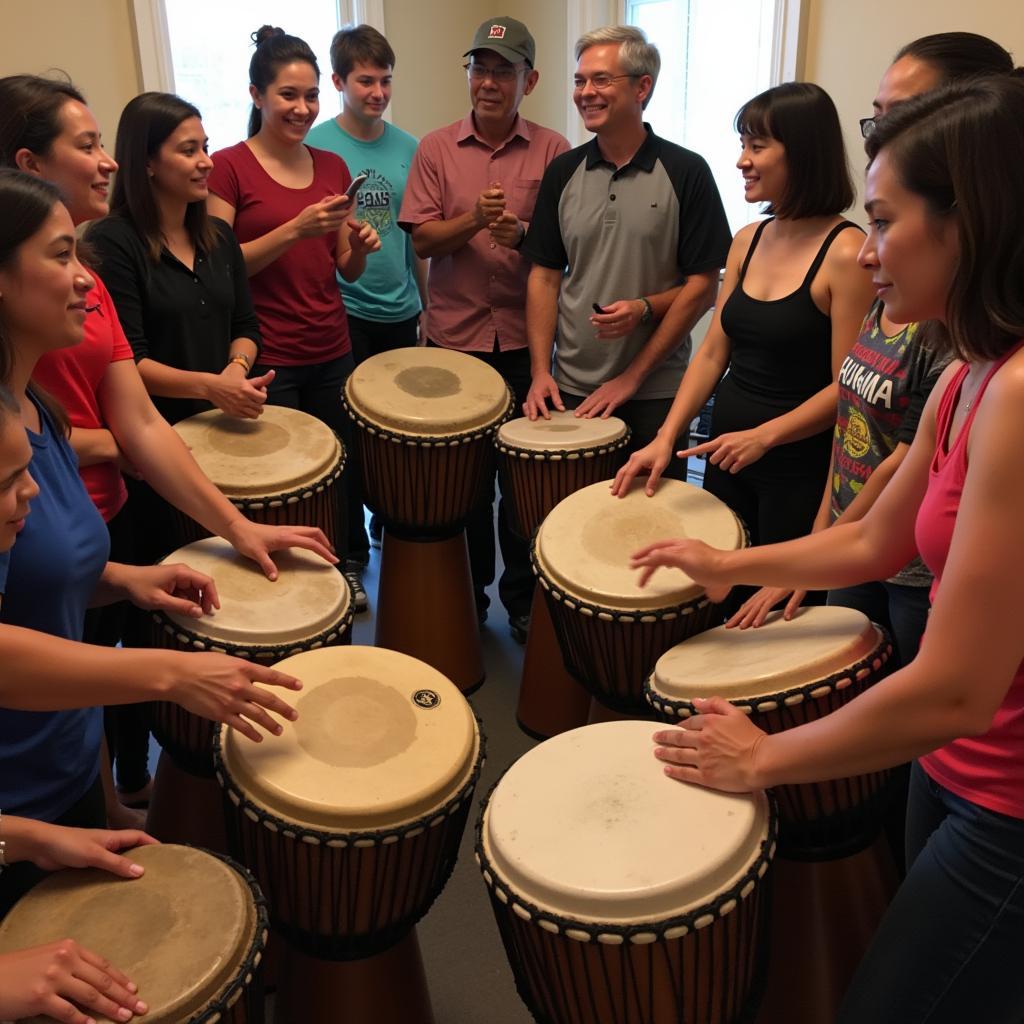Unveiling the Power of Harriet: Exploring African American Autobiography
Harriet Tubman’s life, a beacon of resistance against slavery, stands as a powerful testament to the strength of the human spirit. African American autobiography, including narratives like Harriet’s, provides invaluable insights into the brutal realities of slavery and the unwavering fight for freedom. These personal accounts transcend historical documentation, offering a raw, emotional connection to the past and enriching our understanding of the African American experience. Shortly after the opening paragraphs, you can find more resources on African American struggle leaders.
The Significance of African American Autobiography: Harriet’s Legacy
African American autobiography, particularly narratives from the antebellum period, serves as a crucial counter-narrative to the dominant narratives of the time. These stories, often penned by formerly enslaved individuals like Harriet Tubman, challenge the dehumanizing depictions of African Americans prevalent in mainstream society. They offer a first-hand perspective on the psychological impact of enslavement, the resilience of families and communities, and the courageous pursuit of liberation. These narratives are not simply historical documents; they are testaments to the enduring human spirit in the face of unimaginable adversity.
Why Harriet’s Narrative Matters
Harriet Tubman’s story, though unique in its details, resonates with the broader themes of African American autobiography. Her escape from slavery and subsequent work on the Underground Railroad embody the spirit of resistance and the unwavering commitment to freedom that characterized many narratives of the time. By sharing her experiences, Harriet not only documented her own extraordinary journey but also provided a voice for countless others who suffered under the yoke of slavery.
Her narrative, though not a traditional written autobiography, was preserved through the accounts of others, emphasizing the importance of oral history in preserving African American experiences. It highlights the power of storytelling as a tool for resistance and social change. Learning about narratives like Harriet Tubman’s can deepen our understanding of 19th-century African American literature.
Understanding the Context: Slavery and the Fight for Freedom
To fully appreciate the significance of African American autobiography, it’s essential to understand the historical context in which these narratives emerged. The institution of slavery, with its systematic dehumanization and brutal exploitation, created a society where African Americans were denied basic human rights. Their voices were silenced, their stories suppressed. Autobiographical narratives, therefore, became a powerful means of reclaiming their humanity and asserting their right to self-expression.
The Power of Voice and Agency
These narratives offered a powerful challenge to the prevailing racist ideologies of the time. They provided evidence of African American intellect, creativity, and resilience. By sharing their experiences, formerly enslaved individuals like Harriet Tubman asserted their agency and challenged the narrative of white supremacy. You can discover more about the experiences of African slaves to the US through this resource.
The Role of Literacy and Education
The act of writing and publishing an autobiography was itself a revolutionary act for many formerly enslaved individuals. Literacy was often denied to enslaved people, and the ability to read and write became a symbol of freedom and empowerment. Autobiographies like Harriet’s became important tools in the abolitionist movement, providing powerful testimony to the horrors of slavery and inspiring others to join the fight for freedom.
Exploring Themes in African American Autobiography
Several recurring themes emerge in African American autobiographies, providing insights into the shared experiences of enslaved people and their descendants. These themes include:
- The brutality of slavery: Narratives often depict the physical and psychological trauma of enslavement, including whippings, family separation, and the constant threat of violence.
- The importance of family and community: Despite the efforts of slaveholders to destroy family bonds, enslaved people found ways to maintain connections and create supportive communities.
- The quest for freedom: The desire for freedom is a central theme in many narratives, driving characters to undertake perilous journeys and risk their lives for liberation.
- The power of faith and spirituality: Religion often provided solace and strength to enslaved people, offering hope in the face of despair. Learn more about powerful narratives by African American women.
“Autobiography becomes a weapon in the fight for social justice,” says Dr. Anika Johnson, a leading scholar of African American literature. “These narratives are not just personal stories; they are acts of resistance.”
“Harriet’s story, though told through the voices of others, continues to inspire generations,” adds historian Professor Charles Mkwawa. “Her courage and determination remind us of the power of the human spirit to overcome adversity.”
Conclusion: The Enduring Power of Harriet and African American Autobiography
African American autobiographies, particularly narratives like Harriet Tubman’s, offer a crucial window into the past. They illuminate the complexities of the African American experience, challenging us to confront the legacy of slavery and its ongoing impact. By engaging with these powerful stories, we can gain a deeper understanding of the struggle for freedom and equality and appreciate the resilience and strength of the human spirit. These autobiographies are not merely historical documents; they are essential tools for understanding the present and shaping a more just future. The story of Harriet and other African American narratives continue to resonate today, reminding us of the enduring power of the human spirit and the importance of fighting for justice and equality.
FAQ
-
What is the significance of African American autobiography?
- African American autobiography provides invaluable first-hand accounts of the experiences of enslaved people and their fight for freedom.
-
Why is Harriet Tubman’s story important?
- Harriet Tubman’s story embodies the spirit of resistance and the pursuit of freedom, inspiring generations with her courage and determination.
-
What are some common themes in African American autobiography?
- Common themes include the brutality of slavery, the importance of family and community, the quest for freedom, and the power of faith.
-
How did autobiographies contribute to the abolitionist movement?
- Autobiographies provided powerful testimonies to the horrors of slavery, inspiring others to join the fight for abolition.
-
How can I learn more about African American abolitionists?
- You can explore more about the contributions of African American abolitionists who played a crucial role in the fight against slavery.
More Questions?
If you have more questions about African American history and culture, feel free to explore other relevant topics such as 5 of african slaves to us. You may also find further information on African American women autobiography helpful in expanding your knowledge. For those interested in exploring the literary context of the era, we suggest checking out our resource on the 19th century African American literature syllabus.
We also encourage you to delve deeper into the lives of those who fought for equality by reading about African American struggle leaders.
Need support? Contact us 24/7 at Phone: +255768904061, Email: kaka.mag@gmail.com, or visit our address: Mbarali DC Mawindi, Kangaga, Tanzania.


